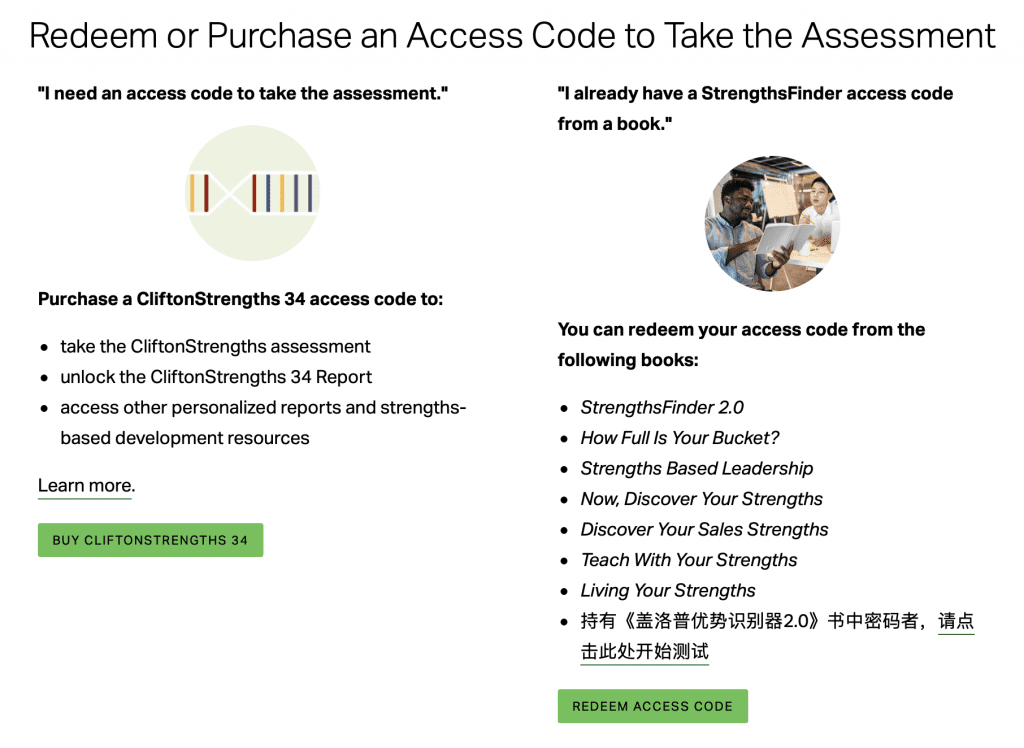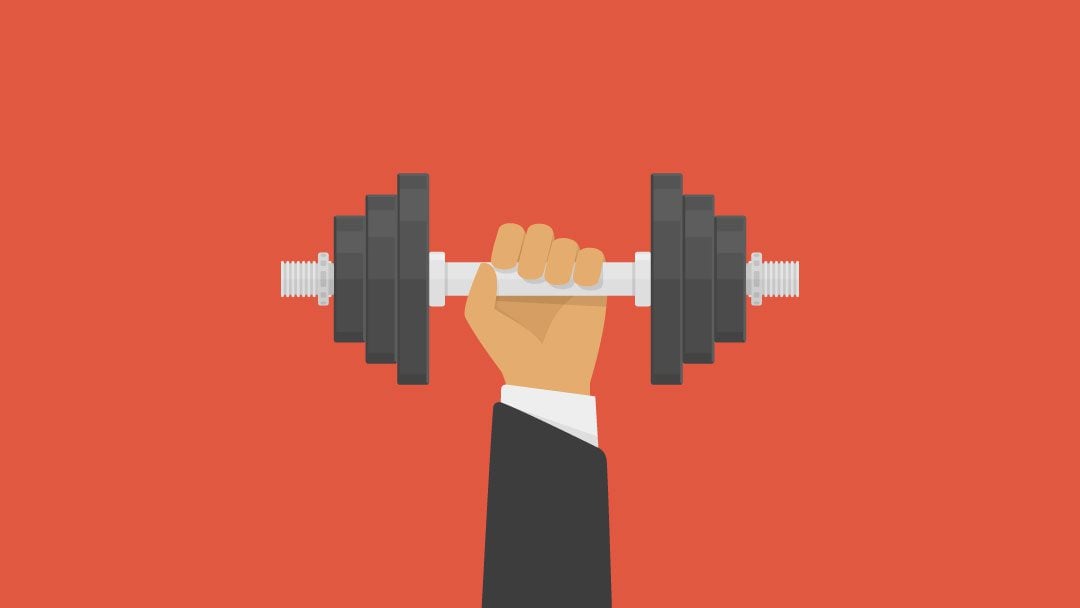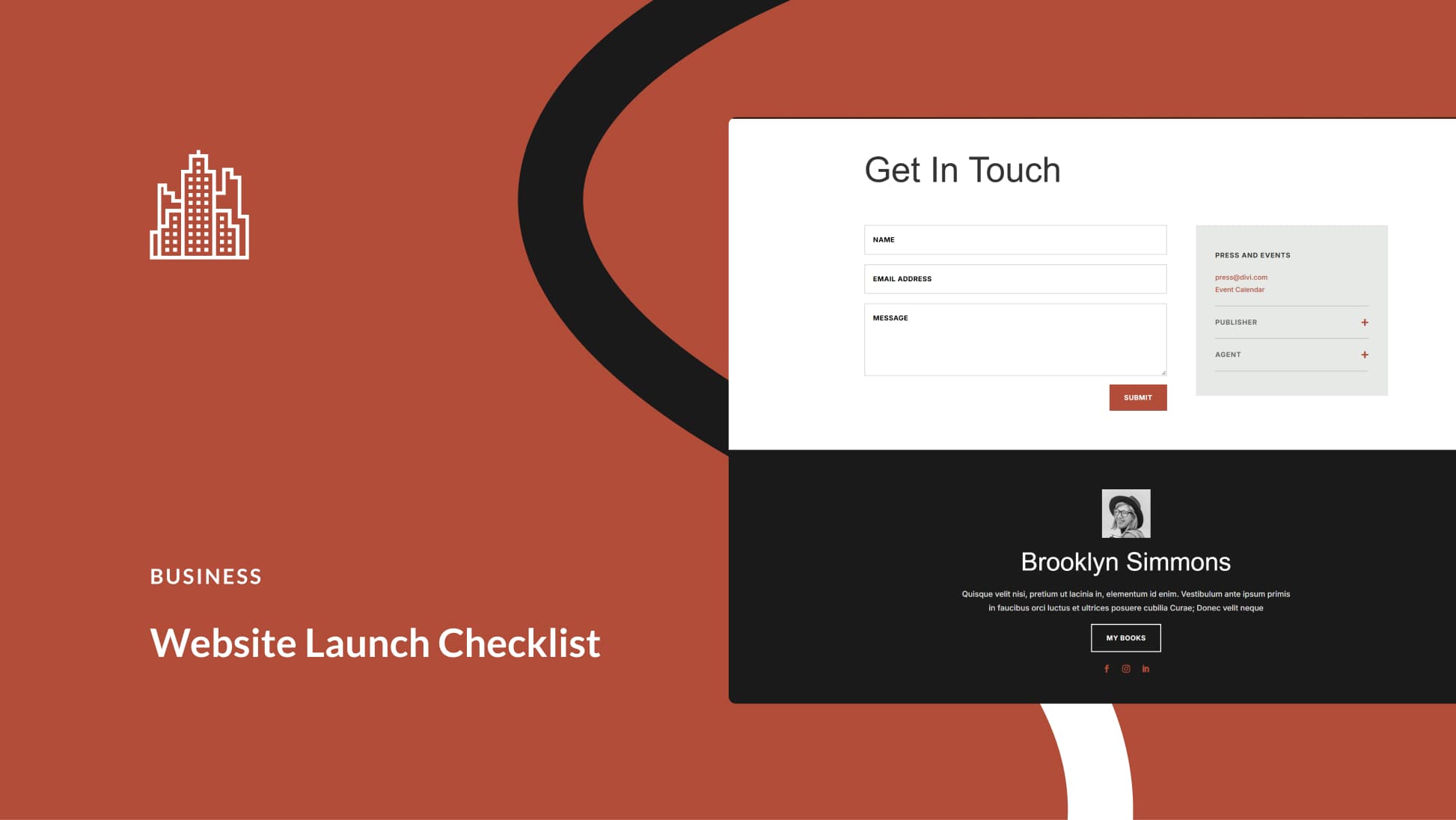While most people spend their time thinking about the “what” or “how” behind their daily activities and choices, you know that asking “why” is the key to finding motivation and achieving success. Without knowing why you’re doing something in your life or work, it’s practically impossible to do it to the best of your ability. Clifton StrengthsFinder, which has been officially rebranded to CliftonStrengths, is a strengths assessment test that evaluates how you act when you’re at your best. It’s beneficial for individuals who want to know why they’ve succeeded or failed in the past, and it’s also useful for employers and team leaders who want to capitalize on everyone’s natural abilities.
The idea behind the test started with Donald O. Clifton and Paula Nelson’s book Soar With Your Strengths: A Simple Yet Revolutionary Philosophy of Business and Management, which was published in the 90s. A few years later, the book led to the creation of StrengthsFinder, which Clifton developed with a team of scientists and Tom Rath, his grandson. The assessment can be taken online, but it’s also explained in the book StrengthsFinder 2.0 by Rath.
Note that I’ll be using CliftonStrengths and StrengthsFinder interchangeably, but they refer to the same assessment.
Discovering Your Strengths
The assessment has 34 themes, referred to as strengths, that pinpoint your talents and explain why you behave, feel and think in certain ways. The idea is that when you’re able to approach environments and situations with your strengths, both your life and work can improve. The strengths are broken down into four domains:
- Executing
- Influencing
- Relationship building
- Strategic thinking
Knowing your strengths is a start, but understanding how they fit into the domains helps you get more from the results.
StrengthsFinder Domain #1: Executing
If your strengths lie in the “Executing” domain, it means you can get things done. You may like cleaning, organizing, problem-solving and creating systems. The strengths in this domain are:
- Achiever: Stay busy and productive; check things off a to-do list
- Arranger: Create order and systems to be as productive as possible
- Belief: Be guided by core values and a strong purpose
- Consistency: Create clear rules and stick to them
- Deliberative: Be careful when making decisions and anticipating problems
- Discipline: Prefer routines, order and structure
- Focus: Know how to prioritize and focus to stay on task
- Responsibility: Take ownership and be able to keep promises
- Restorative: Understand situations and be able to solve problems
StrengthsFinder Domain #2: Influencing
People who have “Influencing” strengths are able to influence others and get them pumped for something that’s coming up. Persuasion is part of this domain, but that can be either loud persuasion with a ton of enthusiasm or quiet persuasion thanks to charm and magnetism. Strengths in this domain are:
- Activator: Excited to engage people and take action on ideas
- Command: Lead situations with decisiveness
- Communication: Turn thoughts into words and easily make conversation
- Competition: Compare progress to others to measure and assess performance
- Maximizer: Seek out ways to achieve success through growth
- Self-Assurance: Feel confident in both abilities and opinions
- Significance: Want their work to be appreciated
- Woo: Like meeting new people
StrengthsFinder Domain #3: Relationship Building
People with strengths in the “Relationship Building” domain are adept at understanding and bonding with other people. They can feel deeply and are comfortable expressing their emotions. They’re great in group and team situations because they act as the glue that holds everyone together. Strengths in this domain are:
- Adaptability: Adjust to change
- Developer: Help other people reach their potential
- Connectedness: Feel that everything is connected; nothing occurs by chance
- Empathy: Understand how others think and feel
- Harmony: Create an environment free of friction
- Includer: Invite outsiders to join in
- Individualization: Recognize someone’s strengths and how they can work with a team
- Positivity: Think positively even in a negative situation
- Relator: Build deep friendships that last a long time
StrengthsFinder Domain #4: Strategic Thinking
People with “Strategic Thinking” strengths tend to be cerebral and logical. While people in this category will think and feel deeply, they express themselves in an intellectual way rather than an emotional way. Strengths in this domain are:
- Analytical: Consider the factors that will impact a situation
- Context: Know how historical events will affect a current situation
- Futuristic: Create a vision of what the future can look like
- Ideation: Come up with new ideas and consider various possibilities
- Input: Collect information and resources
- Intellection: Enjoy deep and thought-provoking conversations and discussions
- Learner: Look for new self-improvement opportunities
- Strategic: See the different ways to reach a goal
How the CliftonStrengths Assessment Works
To take the online StrengthsFinder assessment test, you can either purchase an access code on the website or redeem the access code from one of their books. Find out more about buying or redeeming the access code here.

CliftonStrengths 34 is the complete assessment and delivers your entire strengths profile and related reports. You can also take a lower-cost assessment called Top 5 CliftonStrengths, which unlocks your top five strengths with in-depth explanations and suggestions to maximize your potential. If you start with Top 5 and decide you want to see the full assessment with all 34 strengths ranked, you can upgrade, though the final cost will be higher than if you take CliftonStrengths 34 from the start.
The assessment is made up of 177 paired statements that you’re asked to choose between, such as:
- Starting a conversation with strangers is difficult for me
- I feel energized when I start a conversation with a stranger
Some statement pairs are opposite, like the example above, while others will be more similar, and some won’t have any obvious relationship at all. You’ll pick the statement that sounds most like you. You’ll also choose a number on a scale from 1 to 5 that represents how accurate the statement is.
You have 20 seconds to decide before having to move on to the next pairing. The assessment takes one hour to complete. When you’re finished, you’ll get your test results right away. You can see an example of a CliftonStrengths 34 report here. If you just want the Top 5 assessment, you’ll get a Signature Themes report and a Strengths Insight report.
Tips for Taking the StrengthsFinder Assessment
While CliftonStrengths isn’t something you can study for, knowing the format of the test and what’s expected of you will help you get through it painlessly while answering accurately.
- Go with your instincts instead of overthinking each choice
- Choose the statement you feel most intensely about, even if you worry that others wouldn’t approve of your choice
- Make each choice based on reality – your current experiences and thoughts – instead of idealizing a “better” version of yourself
- Avoid choosing 3 on the scale too many times, since too much ambiguity can make the results less reliable
The more prepared you are, the more valid your choices will be.
Benefits of Knowing Individual Strengths
There are several perks to knowing your top strengths and the strengths of your team. Here are some of the business-related benefits of knowing the strengths of managers, leaders and employees:
- Improved efficiency and productivity
- Stronger teams
- Better workforce retention rates
- More customer loyalty
- Higher profits for the business
- Job seekers can pinpoint the best professions and roles
As a manager or someone in a leadership position, knowing the strengths of your employees means you can assign the right role and responsibilities to each person. You’ll then be able to nurture each person’s skills. When employees feel understood and like they’re making a valuable contribution to the business, they’ll be more engaged, which benefits the company.
How Employers Can Use StrengthsFinder
By having new employees take the CliftonStrengths assessment, employers can put them in the right role and assign responsibilities they know they’ll excel at. Additionally, employers will have a realistic view of the areas where the employee will likely under-perform or where they’ll need extra training. Employers will also know how to adapt on-the-fly. For example, if an unexpected job has to get done fast, they can ask an employer with the Activator or Command strength to handle it.
Note that CliftonStrengths is more helpful in terms of optimizing your workforce than hiring. First, it’s not realistic to expect every candidate to take the assessment. Second, you may hire for background and experience. Once you have the right people based on those factors, CliftonStrengths can help you maximize their potential.
How Teams Can Use StrengthsFinder
Team members should know their own strengths as well as the strengths of their coworkers. Everyone will find it easier to work together and understand one another, even if they don’t share the same strengths. The team will understand how each member can contribute, as well as what shouldn’t be expected of them. Overall, every person on the team can do what they’re best at instead of trying to meet unrealistic expectations.
How Freelancers Can Use StrengthsFinder
Even if you don’t have a team to manage, knowing your own strengths as well as the strengths of your clients can help you be a better freelancer. You can recommend that your clients take the assessment before you begin working together, or if they have taken it in the past, you can ask about their results. Not only will the assessment give both of you common terms that will help you communicate clearly, but you’ll also understand why the client makes certain decisions.
This is best for certain kinds of contractors and freelancers. For example, a business or self-improvement coach can reasonably ask clients to take the assessment. However, it wouldn’t be as acceptable for a writer to ask a new client to take the test. Only make it part of onboarding new clients if you need that level of insight into their personality.
Why Weaknesses Aren’t Included
CliftonStrengths purposely leaves out weaknesses. Some people criticize this, but there are a few reasons for not specifically identifying weaknesses:
- Developing strengths is more engaging than trying to improve weaknesses
- Knowing your strengths can help you silo your weaknesses, which makes it easier to choose a course of action
- You’re less likely to feel frustrated and like an under-achiever if you focus on your strengths rather than your weaknesses
It’s not that weaknesses should be ignored. Instead, the idea is that focusing on strengths has the side effect of managing weaknesses. As strengths develop and become the go-to strategy for dealing with anything, weaknesses become much less relevant.
CliftonStrengths vs. Other Strength Assessment Tests
In the strengths assessment niche, it’s common knowledge that paid tests are more accurate than free tests. They tend to be based on scientific studies and are regularly validated and updated. Plus, instead of only worrying about what you do in specific settings and situations, CliftonStrengths cares about how you act, specifically when you’re being the best version of you.
CliftonStrengths also has a huge knowledge base with helpful information so you can further explore your strengths and what they mean for the betterment of your life and career. And with their Theme Thursday playlist on YouTube, you can watch free videos that dive into each strength.
Final Thoughts
When you’re able to figure out what’s working well, you can capitalize on those wins and see even more growth and better performance. CliftonStrengths lets companies celebrate everyone’s differences and find the best way to combine and sync them for the greater good. Corporate culture improves and coworkers learn to appreciate one another for the strengths they share as well as the traits that build a diverse group of people.
For the individual, it’s empowering to know what you do best so that you can do it more often. When self-awareness improves, you’ll make better decisions for your life and you’ll find it easier to relate to others, even if they’re different from you.
Do you want to uncover your brand’s strengths and weaknesses too? Check out our article about How to Conduct a SWOT Analysis of Your Brand.
Featured Image via art-sonik / shutterstock.com









Leave A Reply